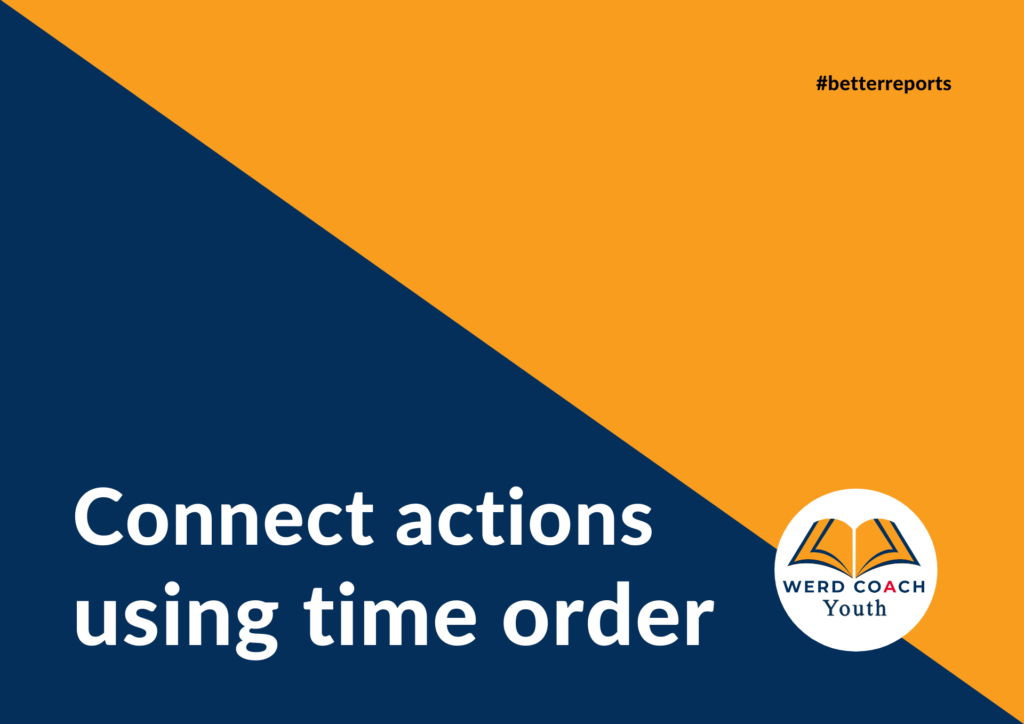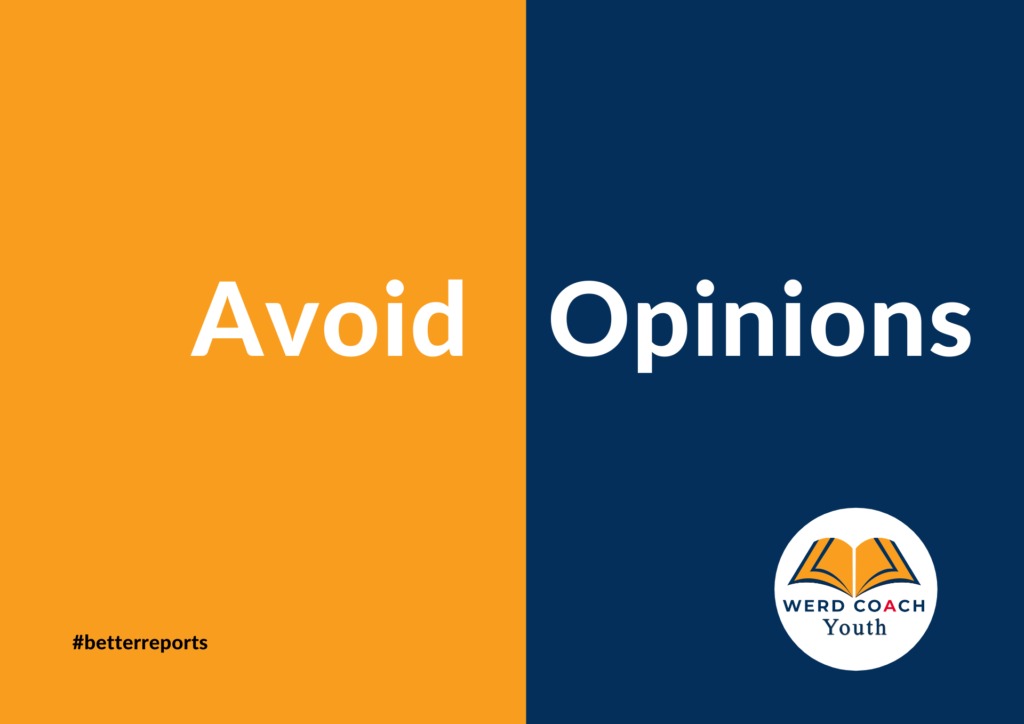To many people, reports don’t feel like creative writing, and figuring out how to score well in reports is a challenge. If students understand a couple of basic things about reports, they will consistently perform better in their writing. #BetterWriting
Report writing takes many students outside their comfort zone because it asks for a formally structured response that excludes all that they’re most familiar with – expressions, casual language, and opinions.
Exceeding expectations in report writing relies heavily on using formal vocabulary and precise language that is void of opinions.
Students must detach themselves from the events and the outcomes and look at situations from an objective position. Even when describing their own role in an event or activity, information should be presented in a measured way.

1. Connect actions using time order
Following time order is especially important so readers can get a sense of how things happened. Connecting ideas is also important, so transition words and phrases should be used to show which came first and which came next.
There are many great transition words and phrases, but the basic ones – next, before, after – work just as well too.
The main thing is that there’s enough information given so readers have their questions answered. It’s good practice to list a few questions that the target audience might want/need to know, then ensure these are answered.

2. Avoid opinions
Opinions have a way of sneaking into everything students say and write, even without them knowing. So, to say “avoid opinions” might seem obvious for a report, but it is easier said than done.
One way to ensure that students avoid opinion is to have them think of every detail in terms of their five senses. If they did not see it, hear it, taste it, smell it, or touch it, then they need to be careful.
So, it’ll be a statement of opinion to say that someone got angry. You don’t know that for sure. You see behaviour and interpret it as anger, but you don’t see the anger.
What you see is someone walking away, stomping their feet with a lot of energy. Or maybe someone’s brow getting forrowed and their eyes looking red.
When writing about the actions as they are observed, students should carefully avoid subjective descriptions. Adjectives and adverbs introduce opinions, so avoid that as much as possible.
Also, students should report the words other people say, but not explain what they think the person means.

3. Tell, don’t show
Report writing asks students to tell what happened, and not to show what happened. This is the exact opposite of what they would be practicing in narrative writing.
For reports, students should carefully avoid descriptive language that introduces how they interpret situations. So, using adjectives and adverbs is frowned upon.
Students don’t have to worry about how participants do their actions. They just need to focus on what was said and what was done.
When relaying information about what was said, reported speech is important. No direct speech or dialogue should be used.
Tell readers what was said, nothing more.

